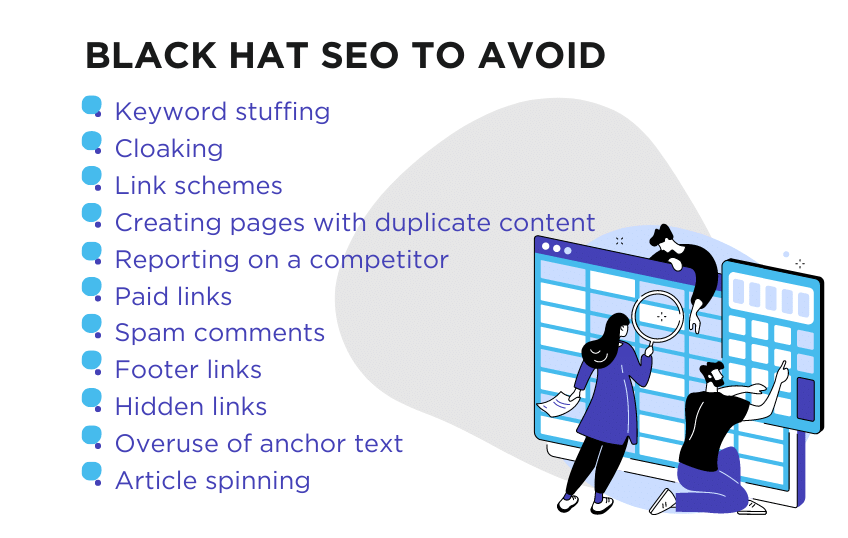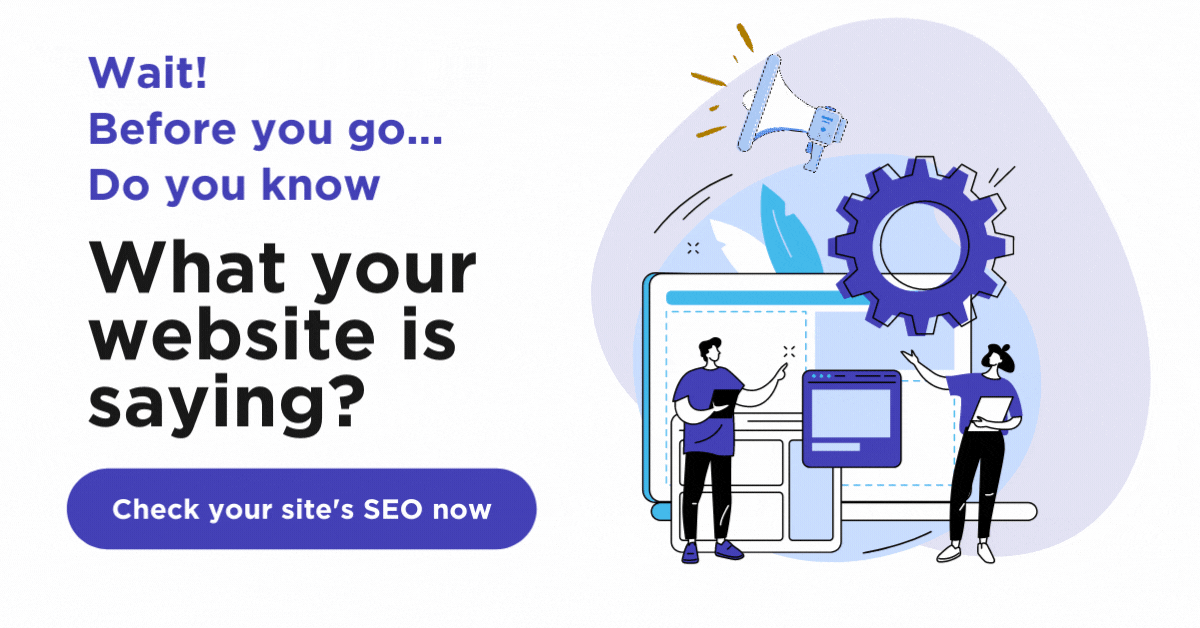What Is SEO?
With the increasing competition between online businesses, it is more important than ever to improve your website’s search engine optimization (SEO). It can be challenging to execute an effective SEO campaign. However, this post will provide you with strategies and techniques that, if performed correctly, are sure to increase your site’s ranking in the search results.
What is SEO?
Before providing solutions to improve SEO, it is important to first define the process.
Search engine optimization is the process of improving a website to increase its position on search engine results pages (SERPs). SEO also involves increasing the quality and quantity of organic traffic. Unlike pay-per-click advertising, SEO is done for free and is meant to target organic search results.
Why is SEO important?
Now you know exactly “what is SEO”, you are now aware of SEO importance for all websites. If your business has a website, it is crucial for that site to rank as highly on SERPs as possible because research has shown that only 0.78% of users click on search results from the second page.
There are many benefits to having great SEO. Here are just a few of those benefits:
- Increased traffic
- Higher visibility
- Competitive advantages
- SEO enhances pay-per-click (PPC) success
- Quality SEO provides users with a better experience
- SEO techniques like link building lead to collaboration between websites.
- Higher conversion rates
- Increased brand awareness
- SEO is free
- SEO attracts local customers
How to improve SEO?
Produce high-quality content
One of the best ways to achieve success with SEO is to produce higher-quality content. High-quality content can be difficult to define, but here are some characteristics of content that would be considered high-quality by search engines:
- Unique and valuable content
- Content that is “fresh”
- Content that has an appropriate length
- Pages are made for users, not search engines.
- The content is easy to read
- Images are properly optimized
- Content is “trustworthy”
Google has said in recent years that producing high-quality content is “the single most important thing to do” to build a Google-friendly website. This means that to improve SEO, you must start by improving the quality of content on your site.
Make your website “link-worthy”
Link building is one of the most important aspects of improving SEO. In the early days of the company, Google primarily ranked websites based on how many links they had. Google has since changed its ranking algorithm to include other factors, but linking still remains important.
It is important for your website to have other authoritative sites linking to it. This shows Google that your site is relevant and trustworthy, and it will increase your website’s position on SERPs.
Below are some great ways to gain links from quality websites:
- Guest blog on authoritative sites
- Produce quality content that other websites will want to link to
- Perform outreach with websites you want links from
- Be active on social media
- Grow your brand
Identify underperforming pages and optimize them
It is likely that certain pages on your website could be considered “underperforming.” An underperforming page is a page with a high bounce rate, a low average session duration, a low conversion rate, etc.
The best way to identify underperforming pages is by using Google Analytics. Google Analytics provides valuable data regarding your website, which makes it easy to see what pages are underperforming.
Here are some things you can do to improve underperforming pages:
- Add new content
- Optimize images
- Add internal links on well-performing pages that link to underperforming pages.
- Improve readability
- Make sure that the page is mobile-friendly
- Add alt-text to images
Improve page loading speed
Page speed is very important for SEO. Page speed is a direct ranking factor, but can also indirectly affect your website’s ranking because metrics like a high bounce rate, which is associated with low page speed, can hurt your site in the rankings.
Ways to improve page loading speed:
- Reduce redirects
- Leverage browser cache
- Optimize images
- Minimize HTTP requests
- Combine files where possible
- Defer JavaScripts Loading
Use long-tail keywords
Using long-tail keywords is a great way to improve SEO. Long-tail keywords are more specific keyword phrases that users are more likely to search for when they are closer to the point of purchase. It is worth noting that a long-tail keyword phrase is typically 4-6 words.
Targeting long-tail keywords is also great for small businesses that might not be able to compete for short keywords with larger businesses.
Tools for finding long-tail keywords:
Internally link to other pages on your website
Internal links are another great way to improve SEO. An internal link is a link on one page that links to another page within the same domain.
Google crawls websites by following links, and by having internal links on a page, it will help crawlers figure out the relationship between pages on a site.
Tips for internally linking:
- Create lots of content to increase internal linking opportunities
- Use anchor text
- Use a reasonable number of internal links on each page
- Use breadcrumbs
- If your website has a blog, add internal links from the blog to other relevant pages.
Avoid black hat SEO techniques
When attempting to improve your website’s SEO, it is vital that you avoid using “black hat” SEO techniques. Black hat SEO refers to techniques used to increase a site’s ranking by using tactics that violate the search engine’s terms of service.

Black hat SEO techniques that you must avoid:
- Keyword stuffing
- Cloaking
- Link schemes
- Creating pages with duplicate content
- Reporting on a competitor
- Paid links
- Spam comments
- Footer links
- Hidden links
- Overuse of anchor text
- Article spinning
Keep thinking about learning more about SEO?
Check out our other relevant articles:
Google Maps SEO: 10 Tips to Rank Higher on Google Maps
What is Google Maps SEO? Google Maps SEO (search engine optimization) is the process of making your business visible on Google Maps when users search for related keywords to your business. As an internet user, you have likely done a Google search to find a local store selling the product you’re looking for near you. […]
Read moreHow To Check Google Ranking?
Learning how to check Google ranking lets you know how much exposure your website receives for specific keywords. Checking your website’s Google ranking may help you identify areas of strengths and weaknesses you can improve on to rank higher on the SERPs and boost your return on investment (ROI). Read on for more information about […]
Read moreWhat Is Google EEAT and How To Optimize Your Site?
Over the years, digital marketers have determined the key elements that produce a high-ranking webpage. But little is known about the Google algorithm that puts webpages at the top of the SERP. However, Google has provided helpful guidelines to ensure quality pages match user intent. Explore what Google EEAT is and what you can do […]
Read moreHow To Add Google Analytics to WordPress?
Google Analytics is one of the most efficient web analytics tools offered by Google for businesses and individuals who want statistics on a specific website’s performance. Further to this, it provides you as the site owner with data on visitor insights such as how they access the site, the channels they use, top keywords used to […]
Read more